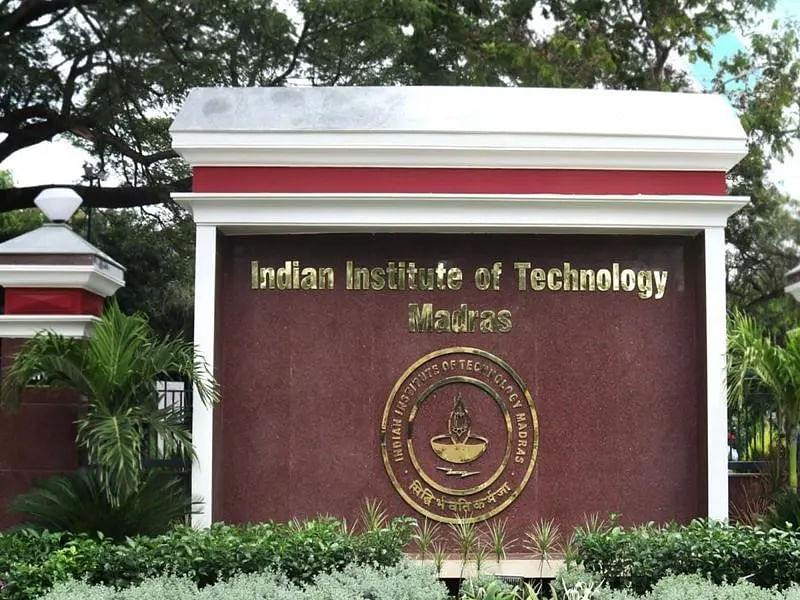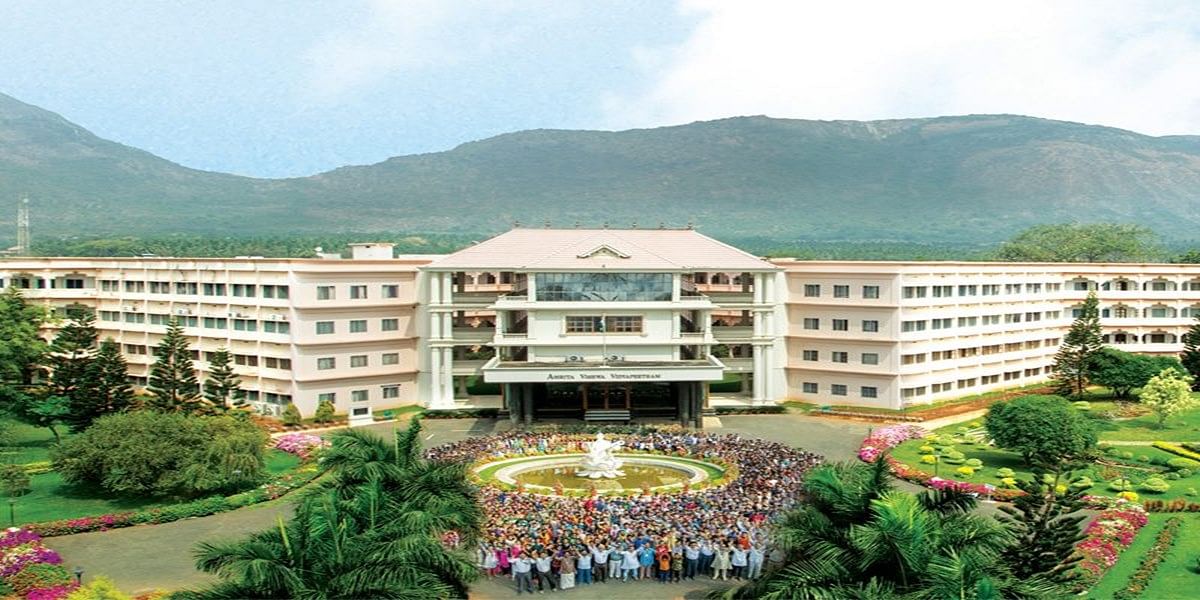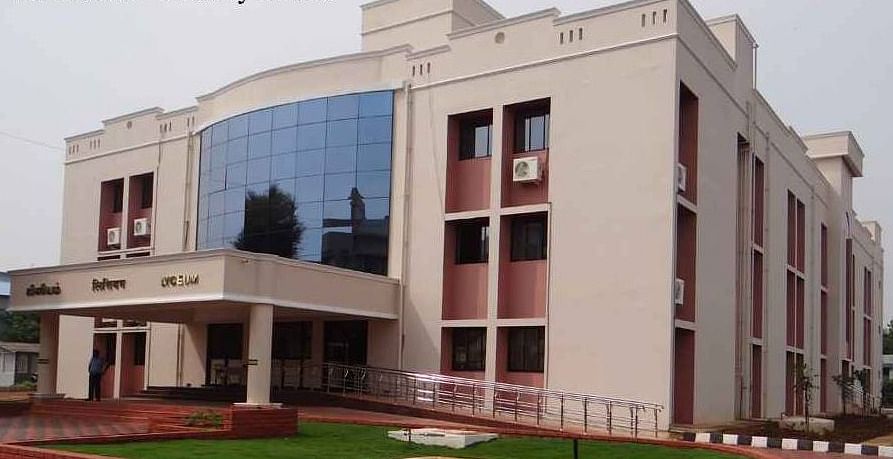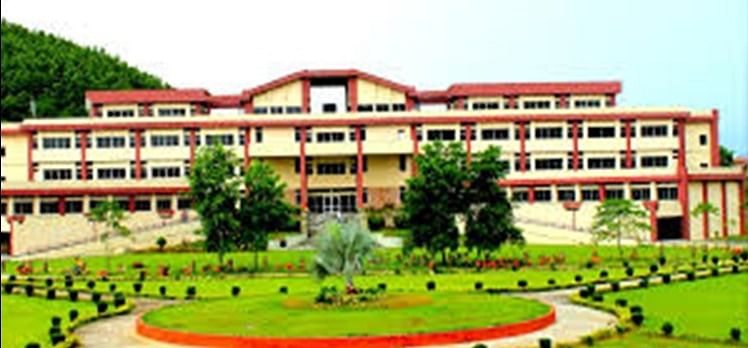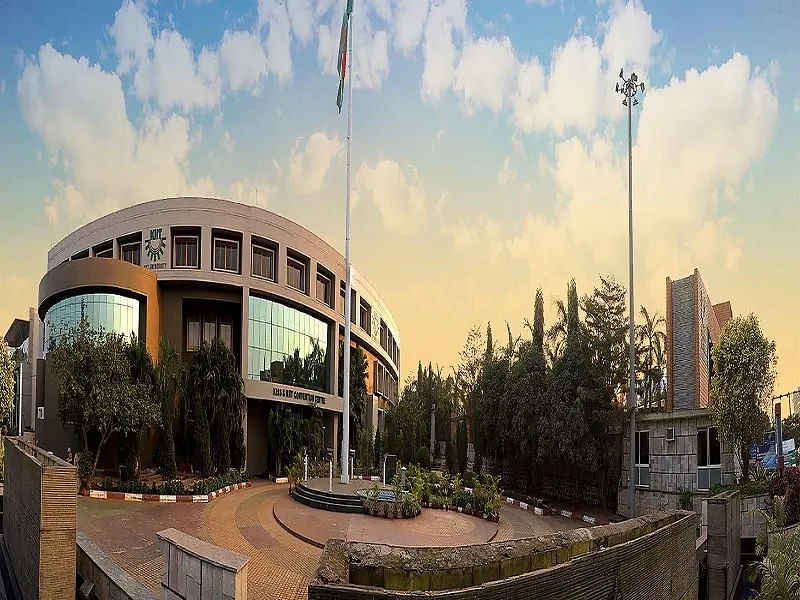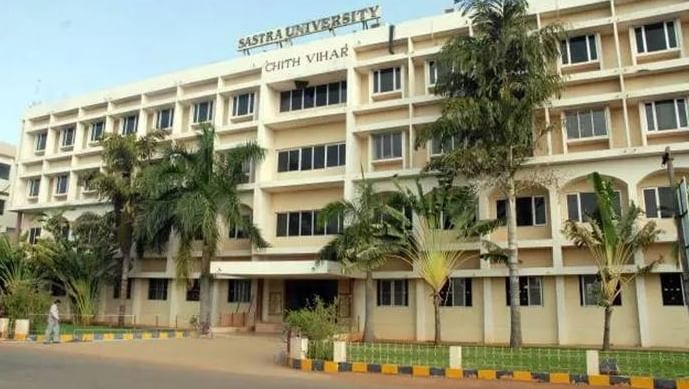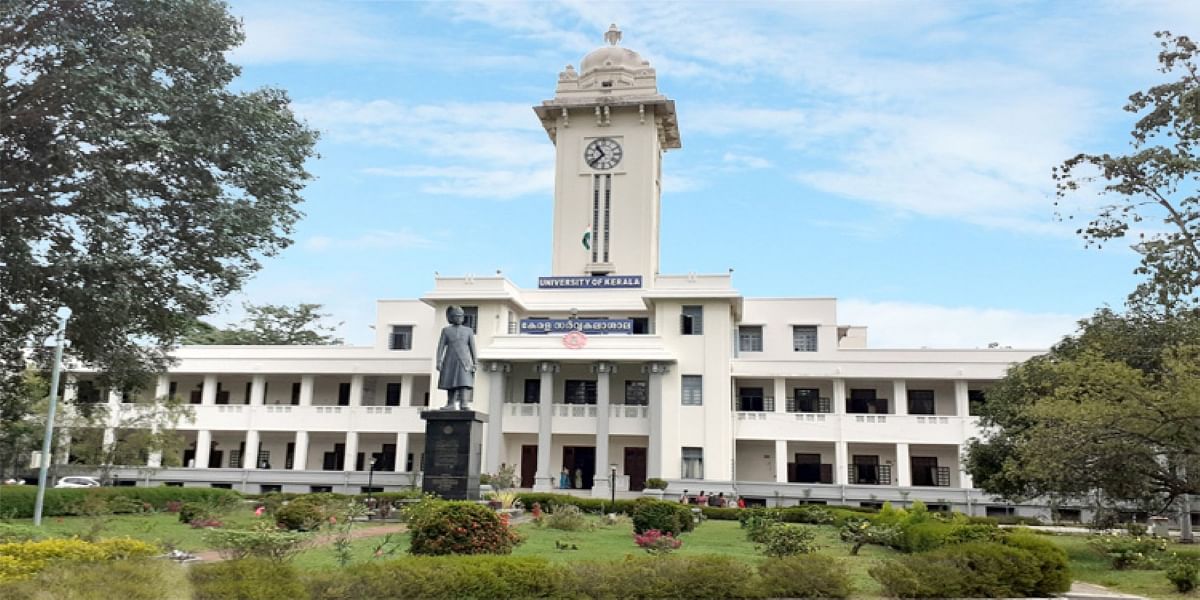M.Tech Communication Systems

M.Tech Communication Systems is a two-year-long full-time postgraduate course that deals with equipment, devices and technologies that communicate voice, data and multimedia information. This course combines the fields of information technology and telecommunications to build effective communication systems. Students learn to design, operate, install and service communications systems and equipment to meet the needs of businesses and other organizations. This course offers ample job opportunities to students, and they can work as Public Relations Specialist, Media Consultant, Communications Coordinator, Systems Consultant, Consulting Systems Engineer, Design Manager, Communication Manager, Senior Communication Services Engineer etc. in different sectors.
Table of Contents
- About M.Tech Communication Systems
- Eligibility Criteria for M.Tech Communication Systems
- How To Get Admission in M.Tech Communication Systems?
- Popular Entrance Exams for M.Tech Communication Systems
- Top 10 M.Tech Communication Systems Colleges in India
- Fee Structure for M.Tech Communication Systems
- Syllabus and Subjects for M.Tech Communication Systems
- Why Choose M.Tech Communication Systems?
- Scope For Higher Education
- Salary of a M.Tech Communication Systems Engineering Graduate
- Career Options After M.Tech Communication Systems
- Skills That Make You The Best M.Tech Communication Systems Graduate
M.Tech Communication Systems Course Details
| Degree | Masters |
| Full Form | Master of Technology in Communication Systems |
| Duration | 2 Years |
| Age | No specific age limit |
| Subjects Required | Bachelors degree (BE / B.Tech) in a relevant discipline |
| Minimum Percentage | 50% |
| Average Fees | ₹20K - 2 LPA |
| Similar Options of Study | M.Tech (Electronics and Communication), M.Tech (Digital Communication), M.Tech (Information and Communication Technology) etc. |
| Average Salary | INR 3- 10 LPA [Source: Payscale] |
| Employment Roles | Software Engineer, Embedded Software Engineer, Senior Software Engineer, Communication Engineer, Communication Manager, Assistant Professor |
| Top Recruiters | Tata Consultancy Services, Intel Corporation, IBM India Private Ltd, Infosys Ltd, Medtronic Inc. |
About M.Tech Communication Systems
M.Tech Communication Systems is a two-year postgraduate Electronics and Communication Engineering program that trains students to efficiently design and supervise communication systems, ranging from simple point-to-point communication links to more complex heterogeneous networks. M.Tech in Communication Systems is a course in the electronics and communication engineering spectrum that prepares students for the telecommunication and electrical industry.
This course falls under the umbrella of M.Tech. The course is further divided into five specializations that students can choose from. This course aims to equip professionals working in Telecom/software for the dynamic and continuous changes of the digital/analog world and thus successfully participate in its future developments and research.
Eligibility Criteria for M.Tech Communication Systems
M.Tech Communication Systems admission is offered to only those students who meet the eligibility requirements. The minimum M.Tech Communication Systems eligibility requirement includes, students must have pursued an undergraduate degree in B.Tech/BE in any relevant engineering stream with a minimum aggregate of 50% from a recognized Institute or Master Degree in Science with Mathematics. There is no specific age limit for M.Tech in Communication Systems. Students should additionally pass the National Level entrance exam GATE or other entrance exams conducted by colleges for admission.
How To Get Admission in M.Tech Communication Systems?
For pursuing M.Tech in Communication Systems, students must ensure that they satisfy the eligibility criteria. While some colleges offer admission to the M.Tech Communication Systems program based on marks obtained by students in the national level entrance exam GATE, other colleges conduct their entrance exam for testing the eligibility of students for admission. Applications for admissions may be availed both from the University website or by directly visiting the college's admissions office. The course is part of the M.Tech course, and therefore, has a very similar admission process to other specializations Mentioned below are the details of the admission process in general:
How to Apply?
M.Tech Communication Systems course information for admissions can be found on the college's official websites in which the students want to apply. Admission registration can be carried out through online and offline methods. Students must visit the college campus for offline admissions, fill out the application form, collect the brochure, and submit all the required documents. For online applications, students should visit the college's admission website and fill out the application form. The submission of the application fees can be made via online money transfer or through cheques/demand drafts from the bank. On submission of the application form, students will receive further correspondence from the college.
Selection Process
The selection process for M.Tech Communication Systems in India is primarily based on the aspirant's entrance exam marks. Some colleges conduct their entrance exams for admission. Based on the merit obtained by the student in the qualifying exam or an entrance exam, the shortlisted candidates are called for the group discussion and personal interview rounds conducted by the colleges. Based on the overall marks obtained by the students, the eligible candidates are offered admission to the program. Admission is strictly offered to only those students who clear the minimum cut-off of the respective college and fulfill the eligibility requirements. The admit card and other details regarding the exam are notified on the college website beforehand. The students are informed about the results through email communication or can visit the colleges' official website.
Read More on M.Tech Admission
Popular Entrance Exams for M.Tech Communication Systems
Almost all colleges offering M.Tech in Communication Systems have an entrance exam-based admission process. The national level entrance exam, GATE, is considered in some colleges while others conduct their own entrance exams. Some of the top M.Tech Communication Systems entrance examinations are:
A Quick Glance at the M.Tech Communication Systems Entrance Exams
Students who desire to opt for M.Tech Communication Systems should study the exam pattern and syllabus well before time. This will help students in timely preparation for the entrance exams. In general, the most popular entrance exam, GATE, has the following pattern:
- Sixty-five questions carrying 100 marks, which are to be completed in 3 hours or 180 minutes.
- There are three sections, including General Aptitude, Engineering Mathematics, and Core Subjects.
- The Engineering Mathematics will carry around 15% of the total marks, the General Aptitude section will carry 15% of the total marks, and the remaining 70% of the total marks is devoted to the core subject of the paper.
- GATE would contain questions of two different types are Multiple Choice Questions (MCQs) and Numerical Answer Questions.
Top 10 M.Tech Communication Systems Colleges in India
M.Tech Communication Systems colleges are located all across the country in different regions. Students can opt for the best college depending upon their merit and specialization needed. Some of the top M.Tech Communication Systems colleges in India are:
|
Sl. No. |
Name of the Institute |
|
1 |
|
|
2 |
|
|
3 |
|
|
4 |
|
|
5 |
|
|
6 |
|
|
7 |
|
|
8 |
|
|
9 |
|
|
10 |
Fee Structure for M.Tech Communication Systems
The M.Tech Communication Systems fees for various colleges in India is around INR 20,000- 2 LPA. The course fees may vary based on the type of institute, location, infrastructure, faculties, and facilities available.
|
Sl. No. |
Name of the Institute |
Average Annual Fees |
|
1 |
VIT University, Vellore |
INR 2.27 LPA |
|
2 |
Indian Institute of Technology, Chennai |
INR 1.20 LPA |
|
3 |
Indian Institute of Technology, Delhi |
INR 1.10 LPA |
|
4 |
National Institute of Technology, Tiruchirapalli |
INR 64,500 Per Annum |
|
5 |
SRM University, Kanchipuram |
INR 3.00 LPA |
Syllabus and Subjects for M.Tech Communication Systems
M.Tech Communication Systems duration is two years with four semesters. The M.Tech Communication Systems syllabus enables students to learn how to design, operate, install and service communications systems and equipment to meet the needs of businesses and other organizations. The program offers various fields of specialization like media studies, organizational communication, government communication, health communication and identity and diversity in communication. The curriculum consists of core courses devoted to the design basics of VLSI systems, the hardware description languages and CAD tools. The elective courses are oriented towards imparting specialized knowledge and skills in advanced VLSI design techniques. Listed below are few core subjects in the course:
- Linear Operators and Integral Equations
- Probability and Stochastic Processes
- Signal Detection and Estimation
- Advanced Digital Communication
- Optical Communication Systems
Read More on M.Tech Communication Systems Syllabus and Subjects
Why Choose M.Tech Communication Systems?
Students often wonder about M.Tech Communication Systems details before choosing the course. Before deciding on a career, students come across queries like, "What is M.Tech in Communication Systems?" and "Why choose M.Tech in Communication Systems?”. To clearly understand answers to these questions, we have framed the following three pointers:
What is M.Tech Communication Systems All About?
M.Tech in Communication Systems is a two-year-long postgraduate course that trains eligible students to efficiently design and supervise communication systems, ranging from simple point-to-point communication links to more complex heterogeneous networks. The course is well structured to make students valuable professionals working in telecommunications for the dynamic and continuous changes of the digital/analog world and successfully participate in its future development and research. The course equips students with the ability to apply advanced-level knowledge, techniques, skills, and modern communication engineering tools. The course is further divided into many specializations that students can choose from, depending on their subjects and areas of interest. Upon completing the course, students can become Public Relations Specialist, Media Consultant, Communications Coordinator, Systems Consultant, Consulting Systems Engineer, Senior Communication Services Engineer, Technical Leader etc.
What Does a M.Tech Communication Systems Graduate Do?
M.Tech in Communication Systems offers a wide range of career options for graduates in both private and public organizations. Communication systems graduates are responsible for designing various equipment/systems for channelizing the communication process. Upon completing the course, students can work as Public Relations Specialist, Media Consultant, Communications Coordinator, Systems Consultant, Consulting Systems Engineer, Senior Communication Services Engineer, Unified Communication Engineer, Technical Leader etc. In addition, students can also opt for a teaching career in both govt. and private educational institutions.
Telecommunication Consultants: They work to develop, maintain, and repair communication systems in an organization. A telecom consultant is a trained professional specializing in the design, installation, and maintenance of various communication systems for sending and receiving information.
Reasons Why M.Tech Communication Systems Can Fetch You a Rewarding Career?
M.Tech in Communication Systems can be a rewarding career for graduates as it trains students for exciting and successful careers in telecommunications systems engineering. It offers ample opportunities to students in various sectors like Research and Development, Teaching, Manufacturing, and Service organizations. With a degree in communication systems, graduates can get jobs with many government and private organizations in communication systems-related job roles.
Career Scope and Options: With the continuous advancement in technology, graduates' demand for communication systems is rapidly increasing. Students are lucratively hired in broadcasting, consulting, data communication, entertainment, research and development, system support etc. Also, with digitalization on the go, students even have options in web broadcasting and video conferencing.
Read More on M.Tech Communication Systems Jobs
Preparation Tips for M.Tech Communication Systems
M.Tech in Communication Systems is an upcoming career option, and students should be well prepared before pursuing the course. Some of the important tips for students seeking admission in M.Tech Communication Systems are:
Study about the Course: Do a detailed study of the course and its syllabus. Then, choose the best-suited career option and specialization for you.
Improvise Your Skills: For grabbing the best opportunities and good performance throughout the course, improve your mathematical and analytical skills. Also, enhance your communication and problem-solving skills.
Go for Internships: It will be beneficial for the students to go for internships and get real-time work experience.
Be Proficient: Students should have proficiency in communication equipment and satellite systems, perform physically and mentally under pressure, and thrive in a team environment.
Scope For Higher Education
M.Tech in Communication Systems is a master's degree that students pursue after a B.Tech degree. There are many specializations under M.Tech in Communication Systems that students can opt for. There are also certain higher study options available for graduate students after an M.Tech degree, which can help them better understand the subject. Also, gaining more education can help the students make a career in research or teaching if they are interested in it. Listed below are some of the popular higher education options available for students:
- PhD in Communication Systems
- MBA
- Certificate Course in Engineering
- M.Phil
Salary of a M.Tech Communication Systems Engineering Graduate
The average salary for an M.Tech Communication Systems graduate is around INR 3-10 LPA (Source: PayScale), which would increase with the experience and skills. M.Tech Communication Systems graduates can work as Media Consultant, Systems Engineer, Network Analyst, Communication Engineer, Design Manager in different private and public sector industries in addition to researcher and academicians. M.Tech Communication Systems offers excellent job opportunities to students in varied fields like broadcasting, consulting, data communication, entertainment, research and development, and system support. Therefore, this course offers ample opportunities to students both in terms of job and higher education.
Career Options After M.Tech Communication Systems
The M.Tech Communication System program will add to the qualifications of B.Tech graduates, thus improving their chances of getting hired. Such postgraduates are lucratively hired in industries such as manufacturing and service organizations such as broadcasting, consulting, data communication, entertainment, research and development, system support, and, in recent times, exchanging data through video conferencing and web broadcasting. Some job roles offered to graduates are:
- Public Relations Specialist
- Media Consultant
- Systems Consultant
- Communications Coordinator
- Speech Writer
- Consulting Systems Engineer
- Design Manager
- Communication Manager
- Senior Communication Services Engineer
- Unified Communication Engineer
- Technical Leader
Skills That Make You The Best M.Tech Communication Systems Graduate
M.Tech Communication Systems graduates should develop good communication and problem-solving skills. They should be good at organizational skills and should be creative in bringing innovative ideas. A few necessary skills for M.Tech Communication Systems graduates are:
- Problem-Solving Skills
- Strong Analytical Skills
- Good Technical Skills
- Strong Management Skills
- Planning Skills
- Strong Networking Skills
